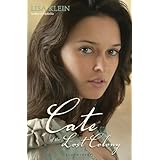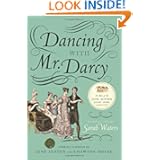What I've Read This Week . . . . Part II
Like a Willow Tree: The Diary of Lydia Amelia Pierce (Dear America) by Lois Lowry -- Middle Grades Historical Fiction
The Unflappable Miss Fairchild by Regina Scott -- Regency Romance
Chas Prestwick, younger brother of the Earl of Prestwick, is a well-known rakehell, but when a former paramour confronts him at a party and threatens to make a scene, he only wants to escape. Luckily, he's accidentally rescued by the arrival of Miss Anne Fairchild who rises to the occasion and handles the situation neatly and quietly. Chas is instantly taken with this angel but thinks she's not for the likes of him. Capable and dependable, Anne has always been willing to do whatever anyone asks in any given situation. The one thing she refuses to do is marry without love, and that happens to be the one goal her Aunt Agatha has in mind for Anne. When Anne finds herself again unexpectedly thrown together with Chas Prestwick, she can't help but enjoy the free feeling the adventure provides. Chas can't get this angel out of his mind and is determined to find out who she is. As luck with have it, Anne's aunt Millicent was a good friend of the Dowager Countess, therefore, Chas finds a legitimate excuse for being in Anne's company and longs to court her properly, but knows he isn't the man for her. For Anne, Chas makes her other suitors appear foolish and boring, but she knows that she doesn't have what it takes to be the woman for Chas. Can true love win out over misunderstandings and the sins of the past? This is a nice, light romance with just the right amount of depth to keep it from being totally fluffy. Chas is a flawed hero and he recognizes his flaws and the reasons for his behavior, which I really like. I also like the family dynamic of the Prestwick family and the way it plays out in the end. Anne is a multi-dimensional character. Her independence is more subtle than most characters and her coolheadedness is much to be admired. The romance is sweet and the chemistry develops nicely without overpowering the plot. There are a few serious kissing scenes but fortunately, they lack the excessive emotional language that often accompanies those types of scenes. I like the characters very much and would like to be friends with them. The plot kept me engaged after a slow Prologue and first chapter. This is a great, quick read for those who enjoy the old style Regencies.
Chas Prestwick, younger brother of the Earl of Prestwick, is a well-known rakehell, but when a former paramour confronts him at a party and threatens to make a scene, he only wants to escape. Luckily, he's accidentally rescued by the arrival of Miss Anne Fairchild who rises to the occasion and handles the situation neatly and quietly. Chas is instantly taken with this angel but thinks she's not for the likes of him. Capable and dependable, Anne has always been willing to do whatever anyone asks in any given situation. The one thing she refuses to do is marry without love, and that happens to be the one goal her Aunt Agatha has in mind for Anne. When Anne finds herself again unexpectedly thrown together with Chas Prestwick, she can't help but enjoy the free feeling the adventure provides. Chas can't get this angel out of his mind and is determined to find out who she is. As luck with have it, Anne's aunt Millicent was a good friend of the Dowager Countess, therefore, Chas finds a legitimate excuse for being in Anne's company and longs to court her properly, but knows he isn't the man for her. For Anne, Chas makes her other suitors appear foolish and boring, but she knows that she doesn't have what it takes to be the woman for Chas. Can true love win out over misunderstandings and the sins of the past? This is a nice, light romance with just the right amount of depth to keep it from being totally fluffy. Chas is a flawed hero and he recognizes his flaws and the reasons for his behavior, which I really like. I also like the family dynamic of the Prestwick family and the way it plays out in the end. Anne is a multi-dimensional character. Her independence is more subtle than most characters and her coolheadedness is much to be admired. The romance is sweet and the chemistry develops nicely without overpowering the plot. There are a few serious kissing scenes but fortunately, they lack the excessive emotional language that often accompanies those types of scenes. I like the characters very much and would like to be friends with them. The plot kept me engaged after a slow Prologue and first chapter. This is a great, quick read for those who enjoy the old style Regencies.












